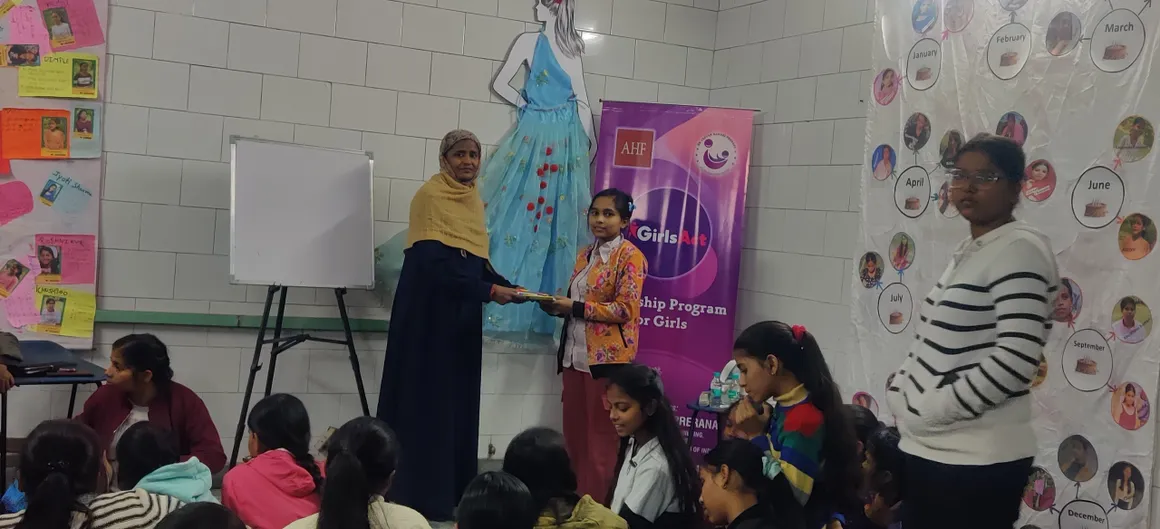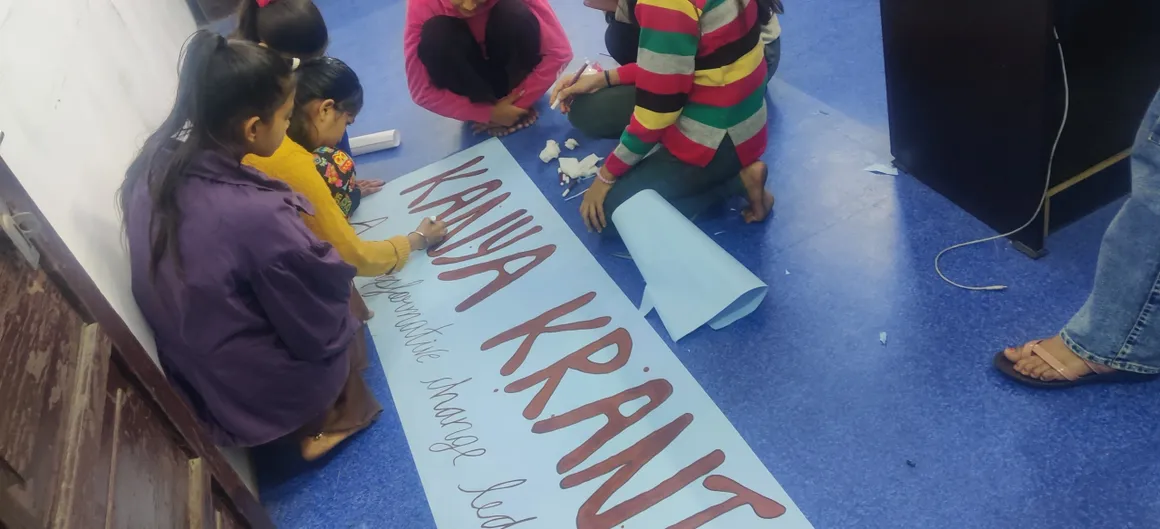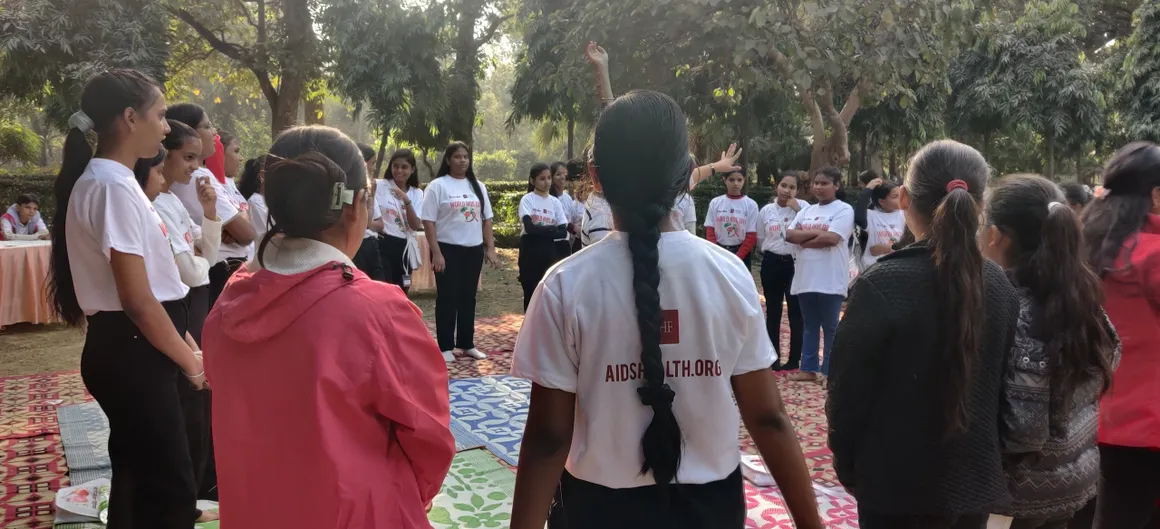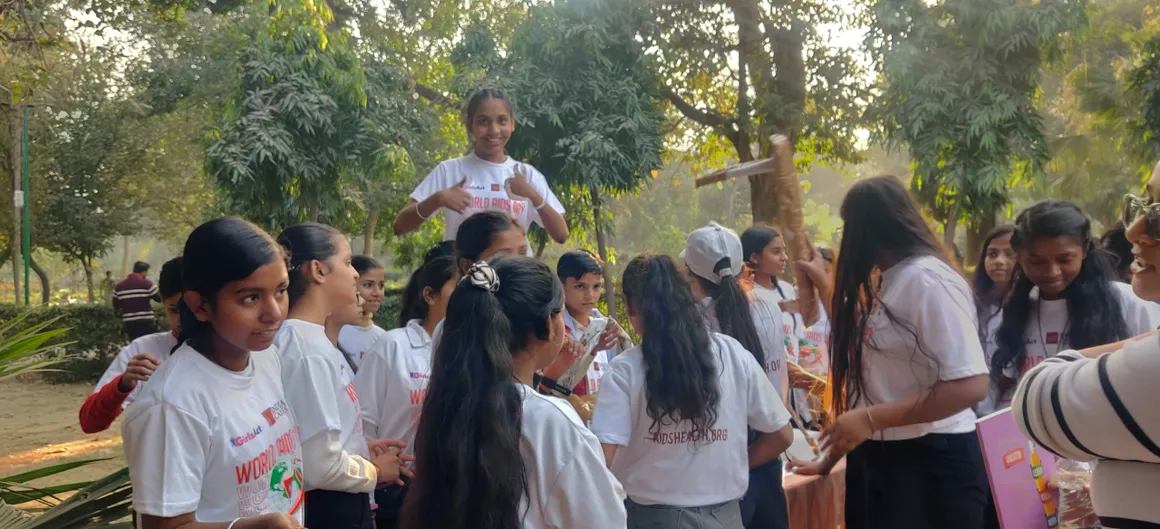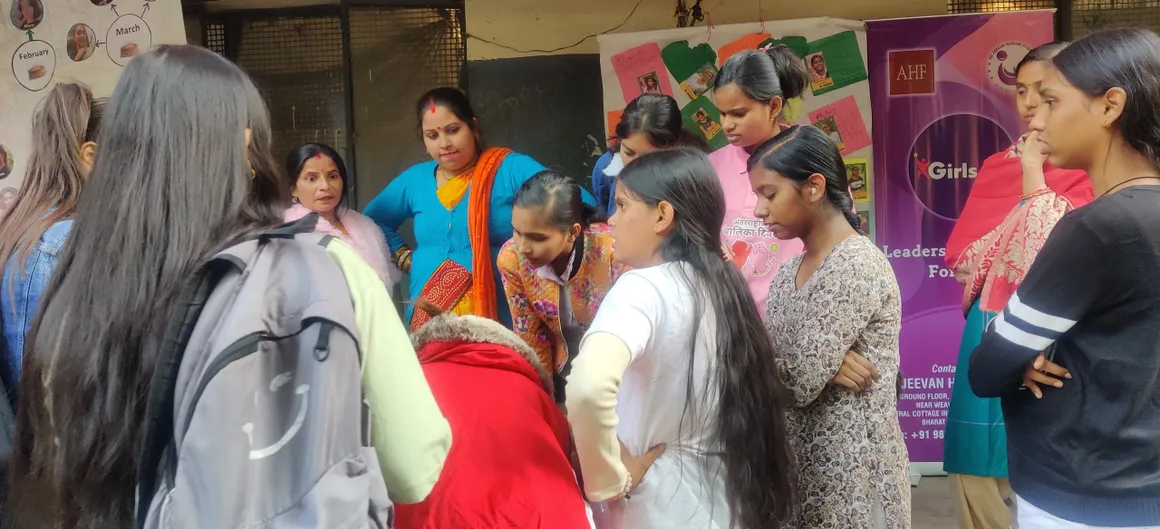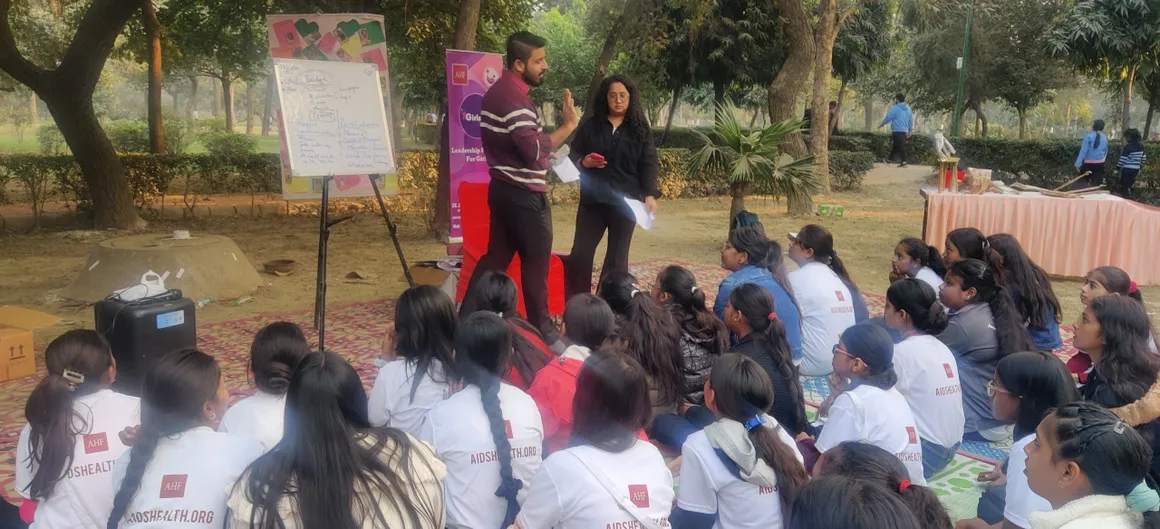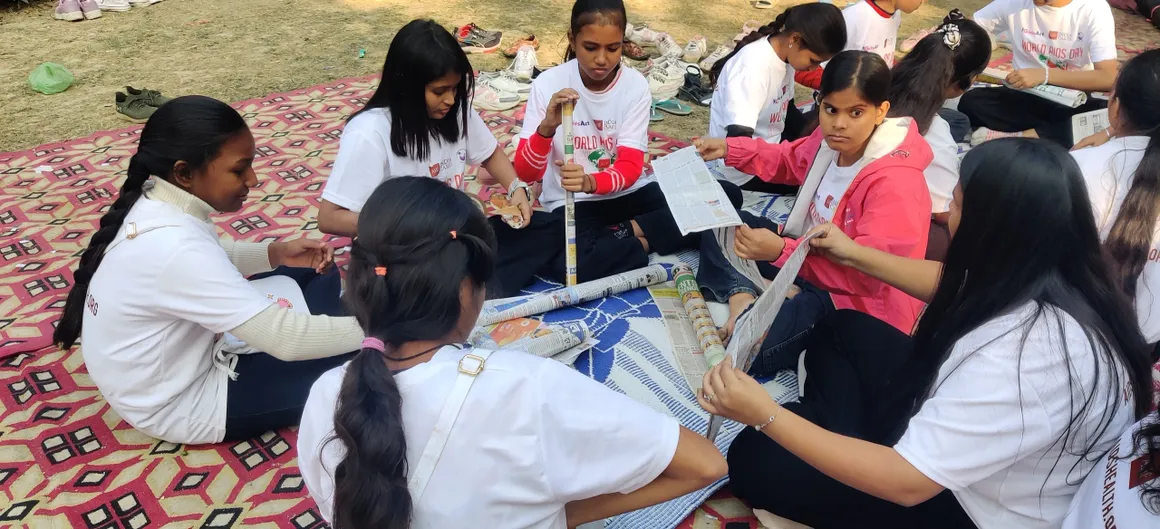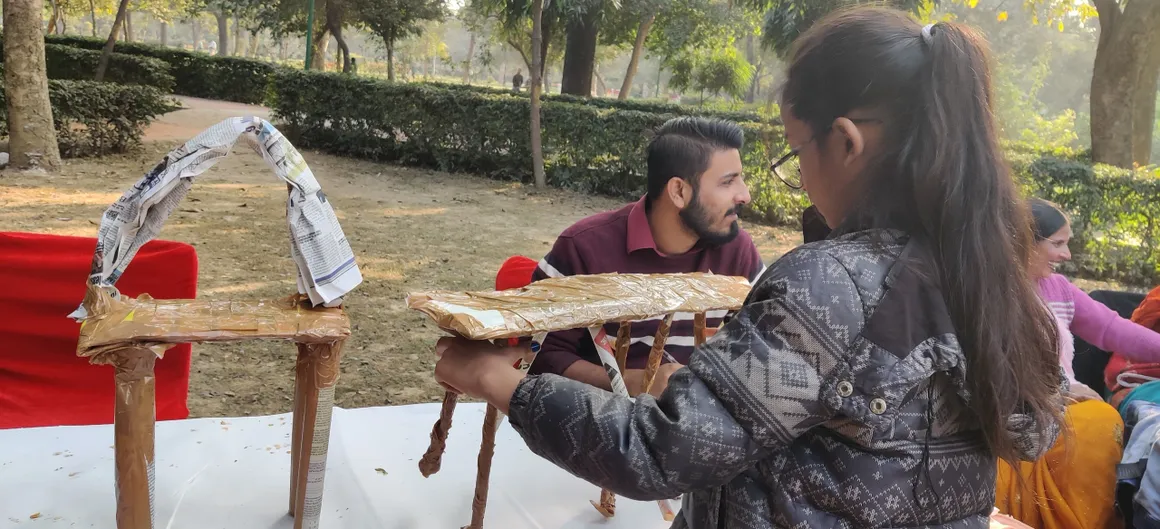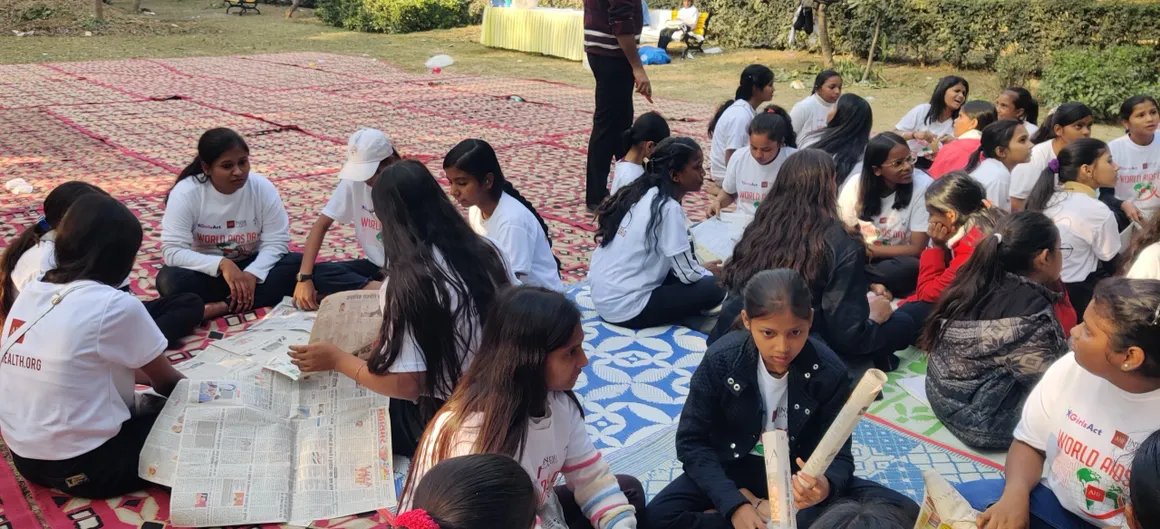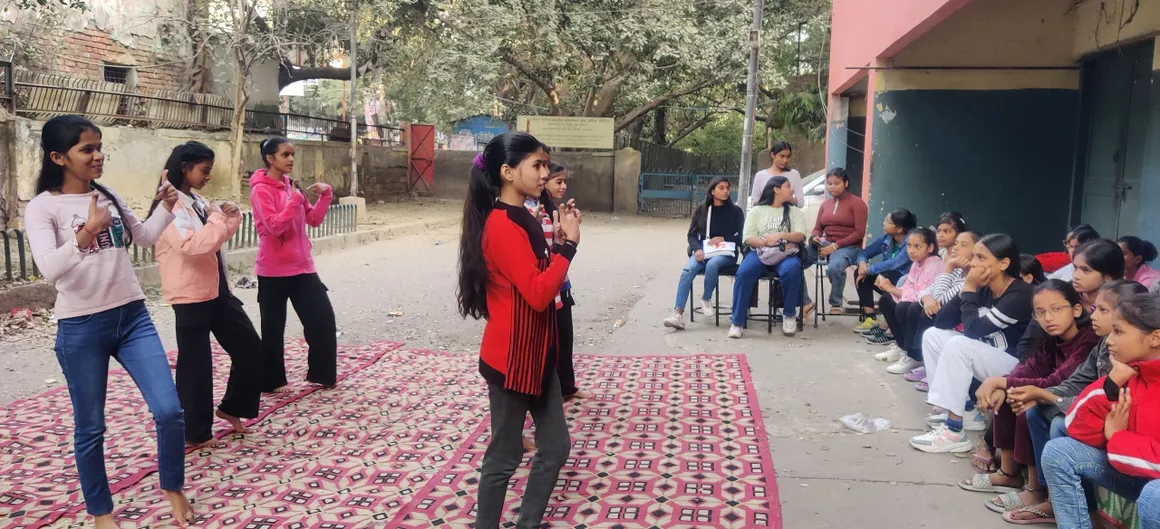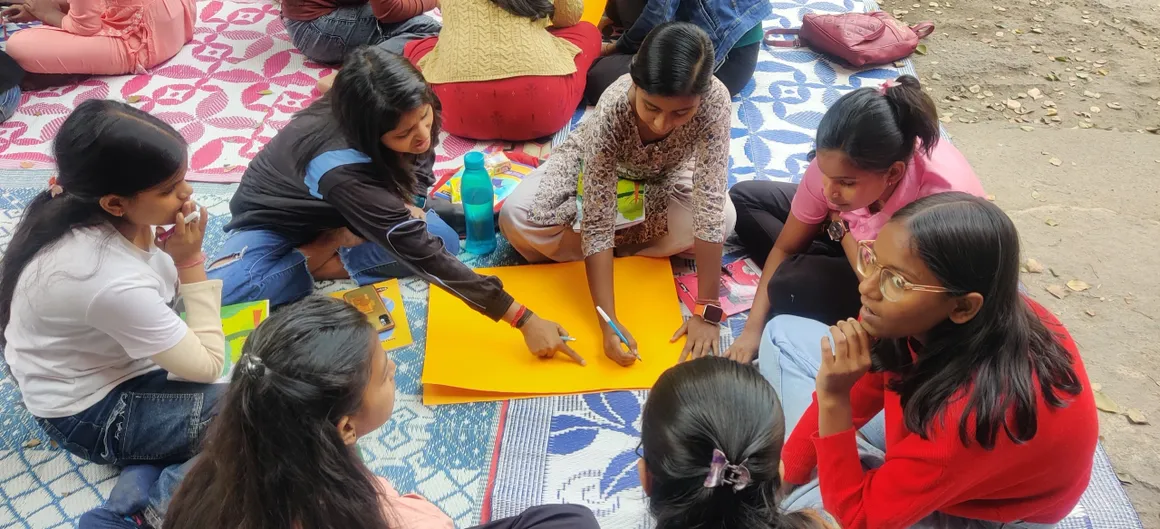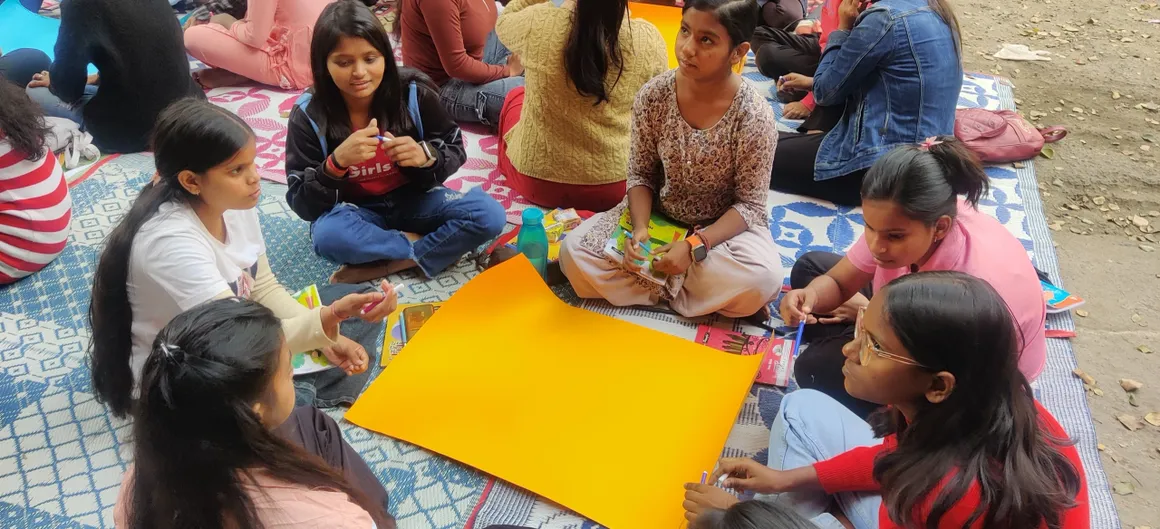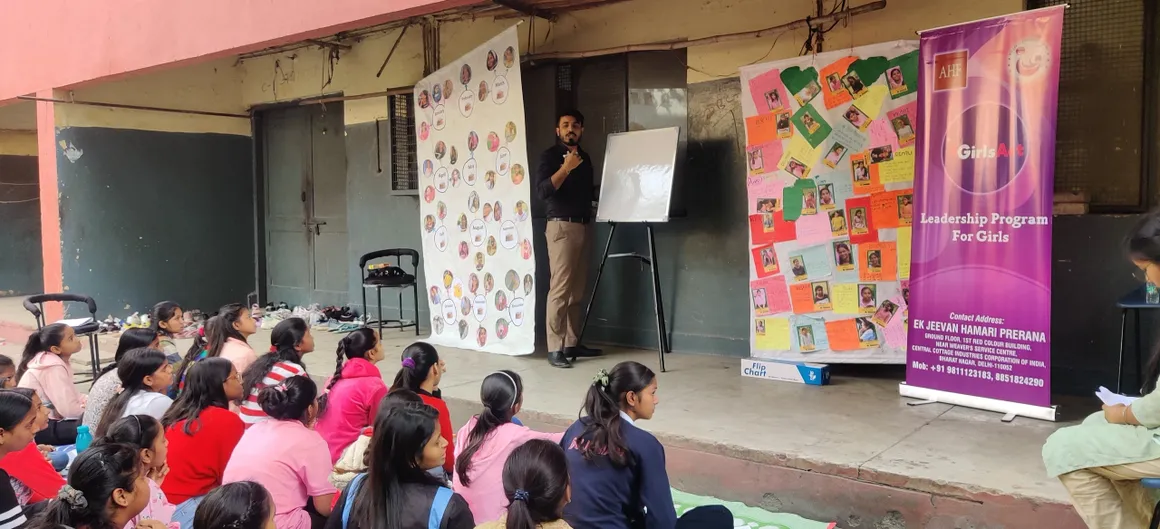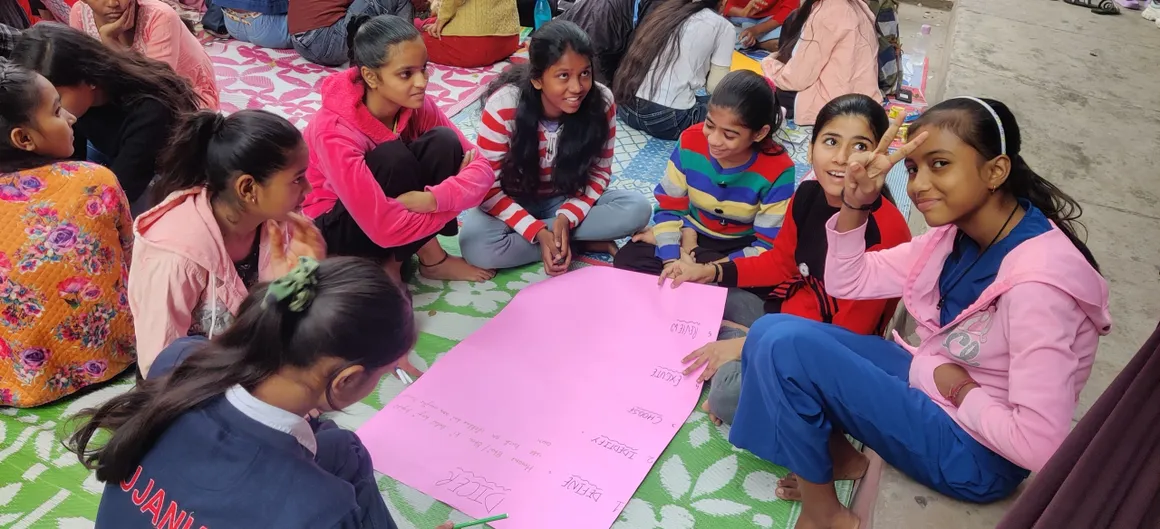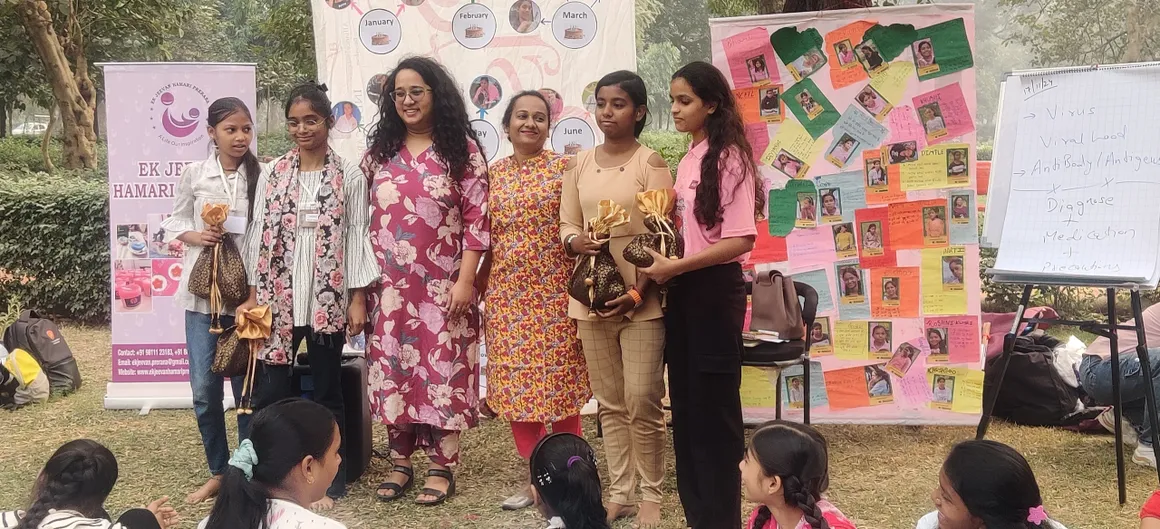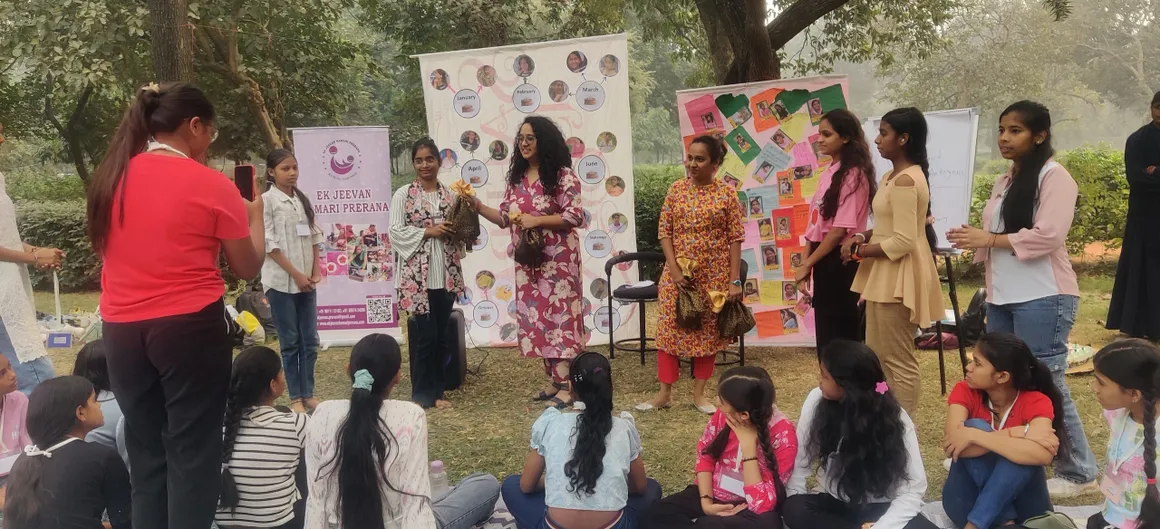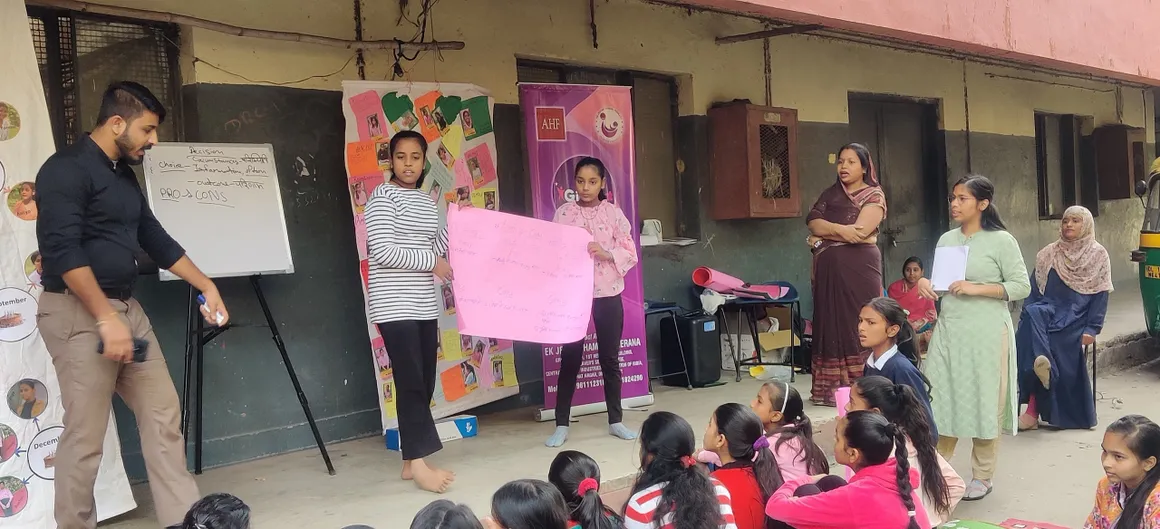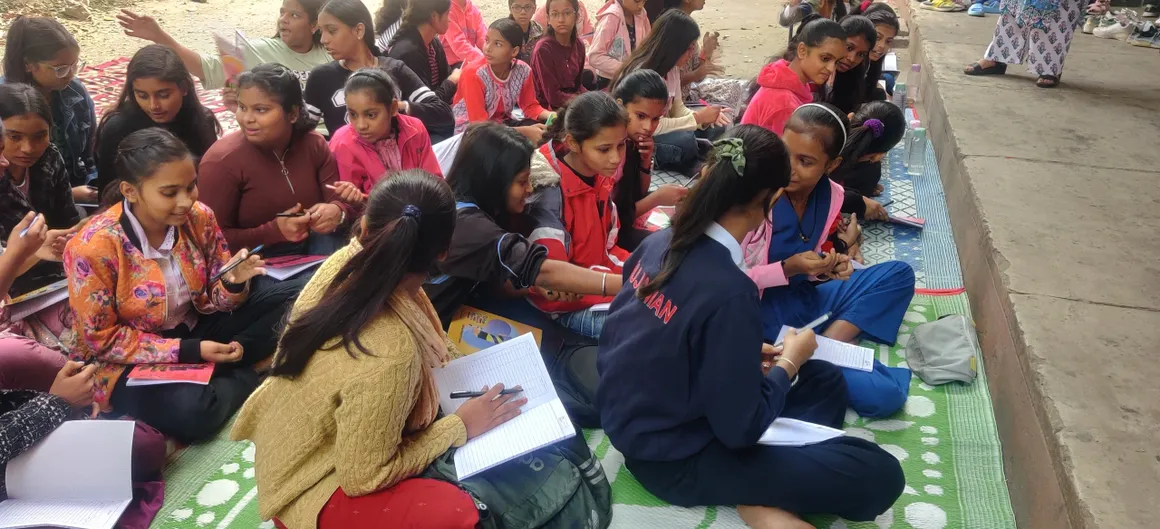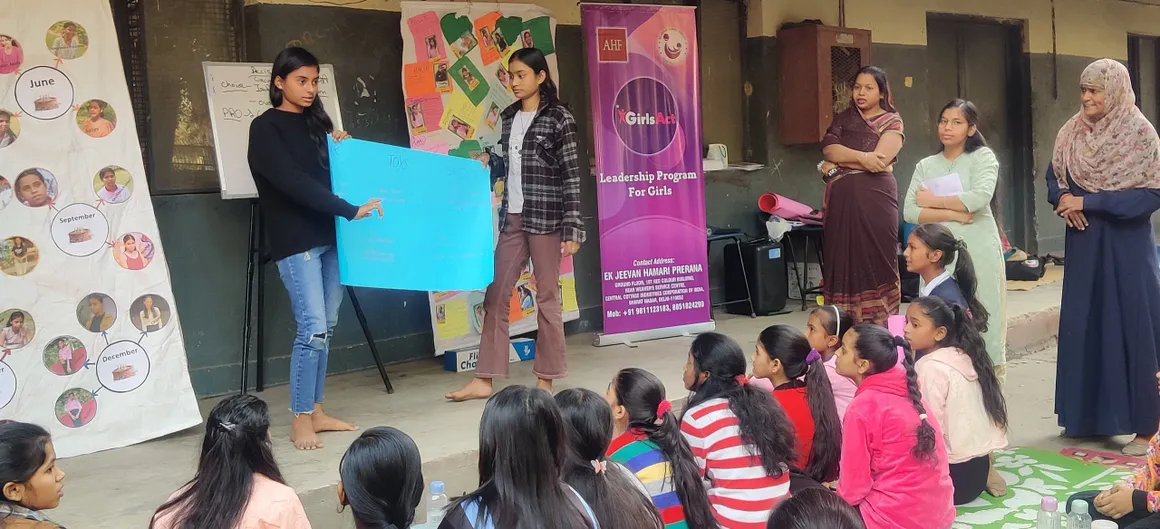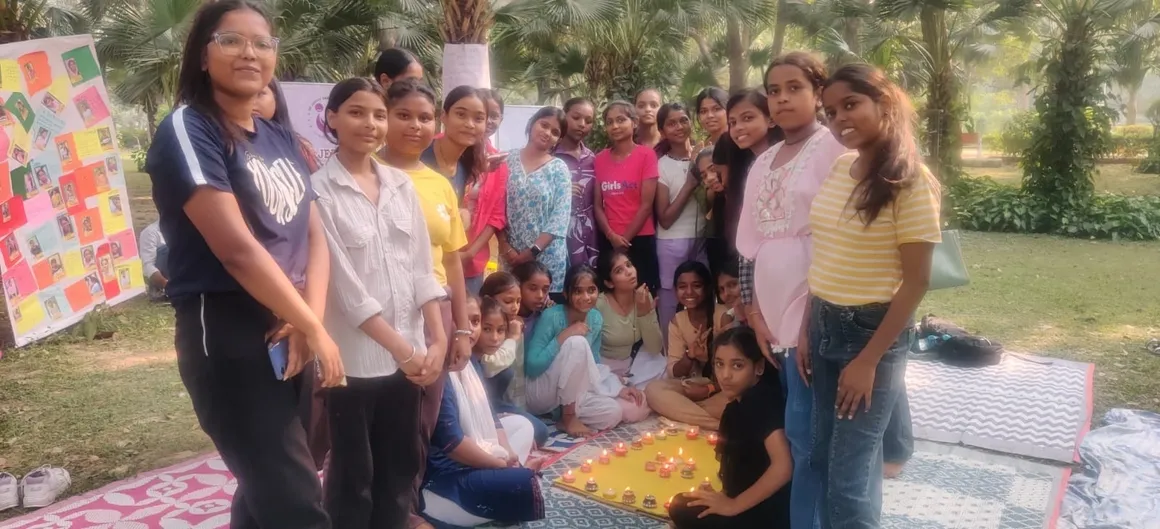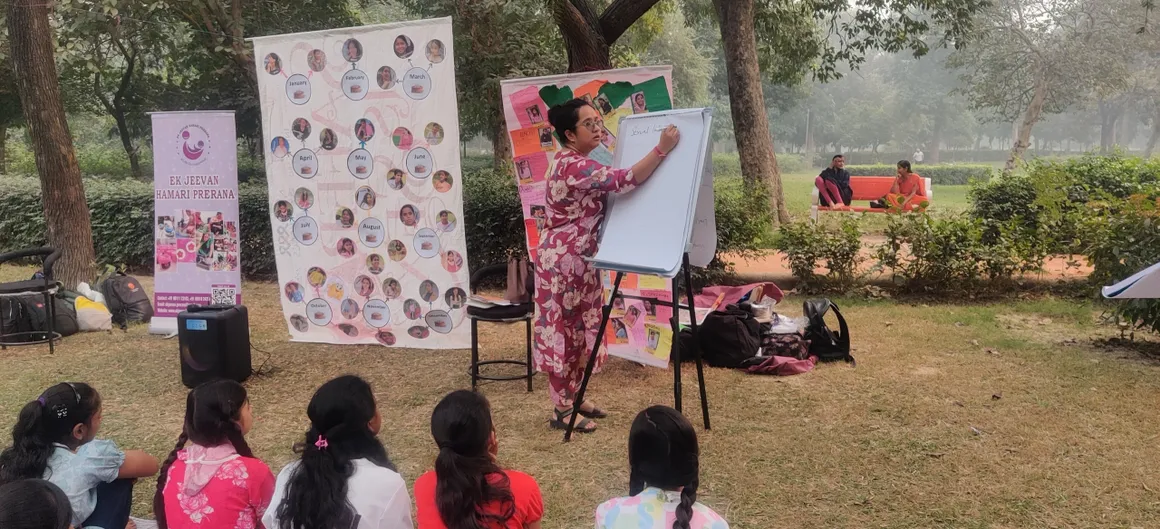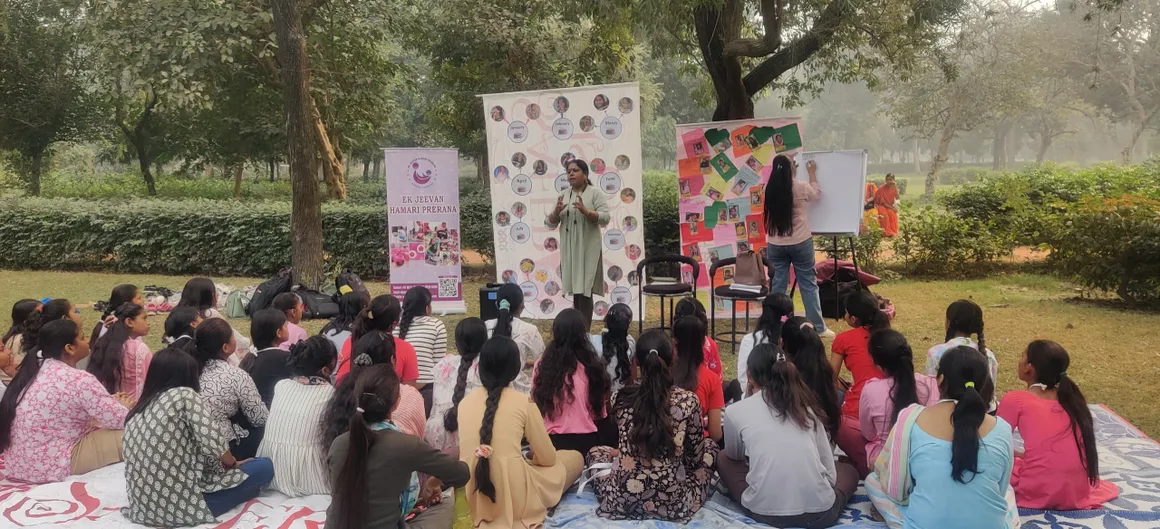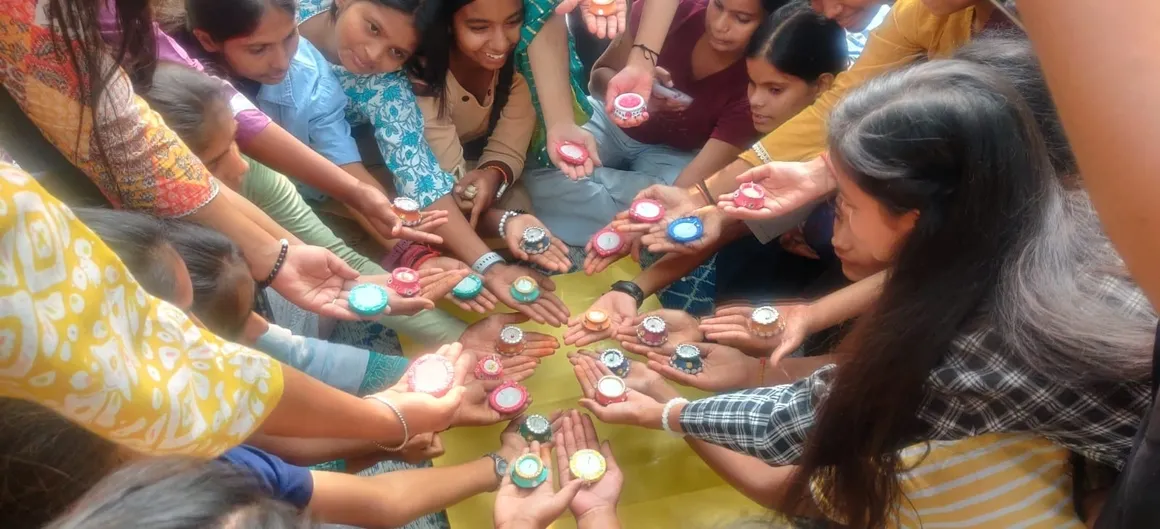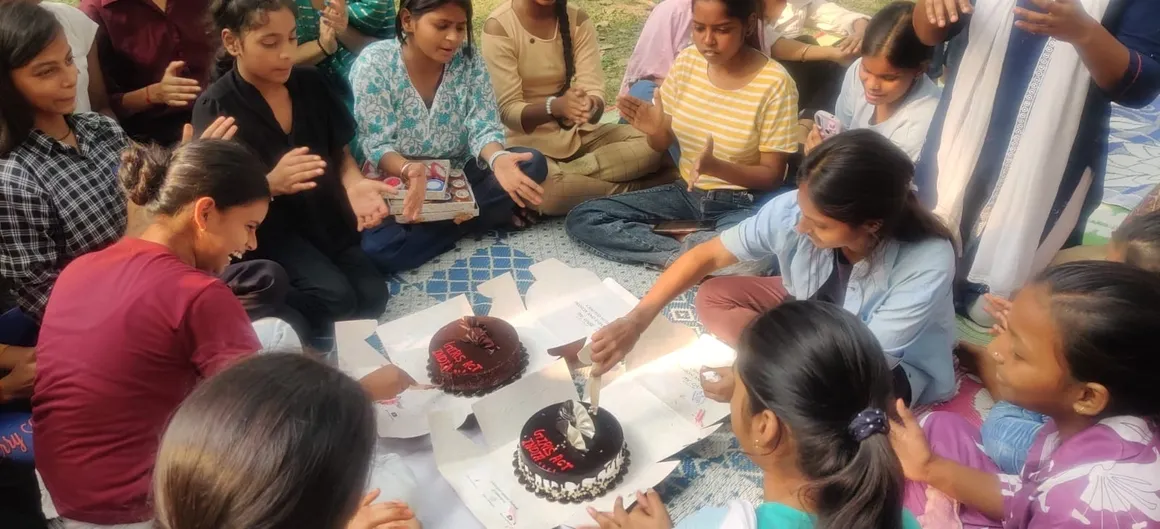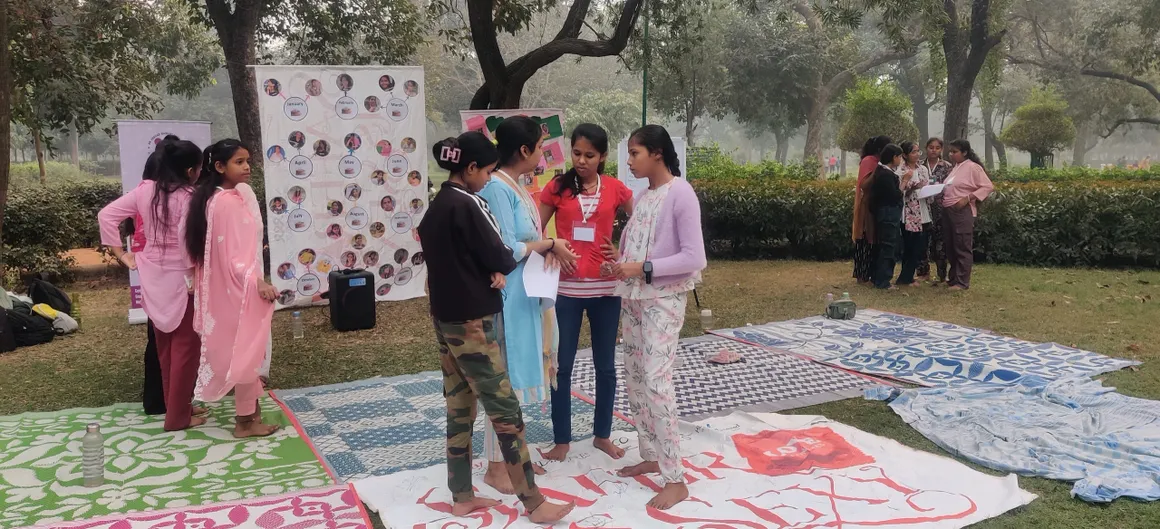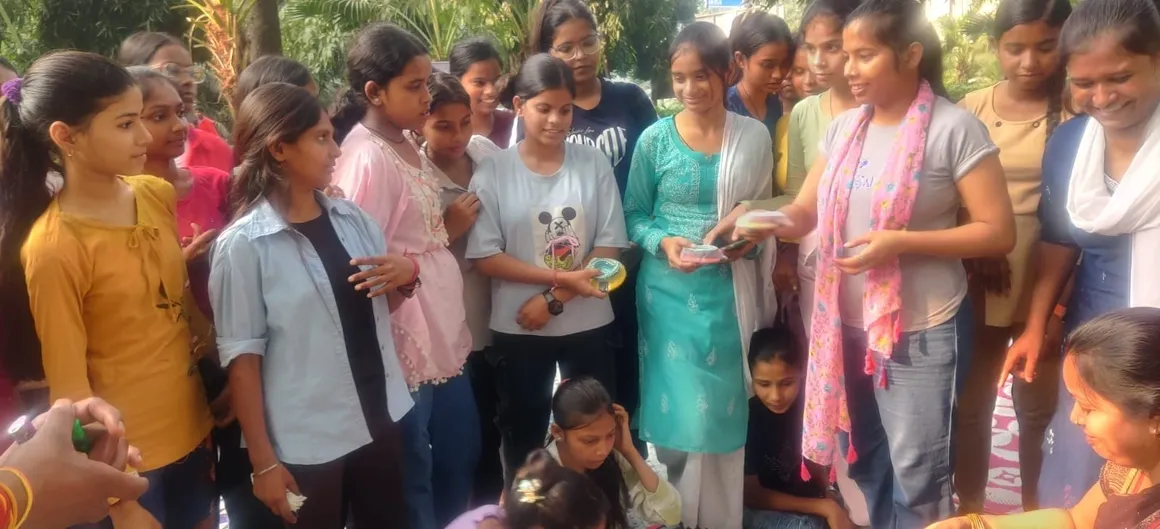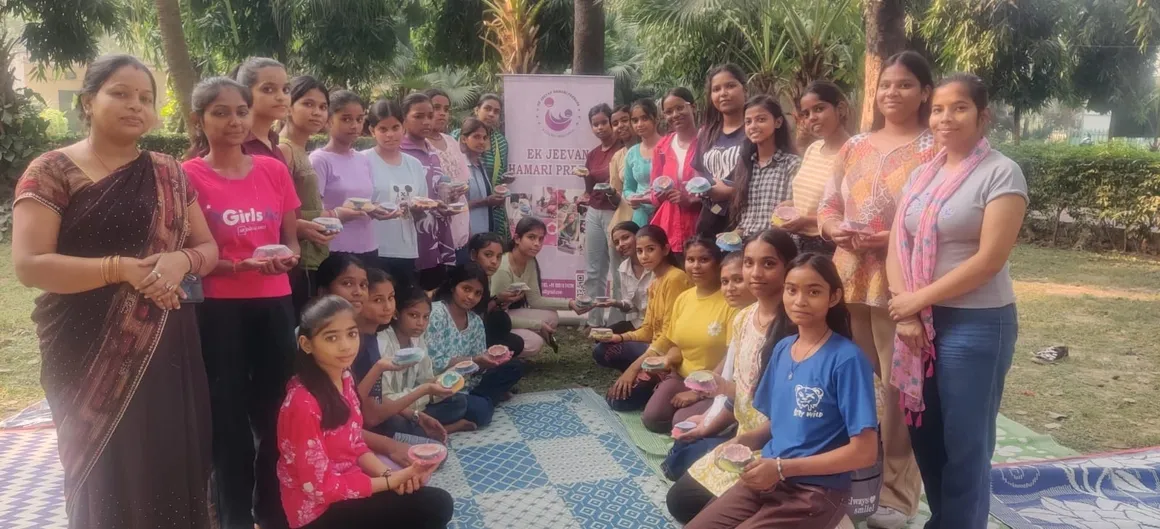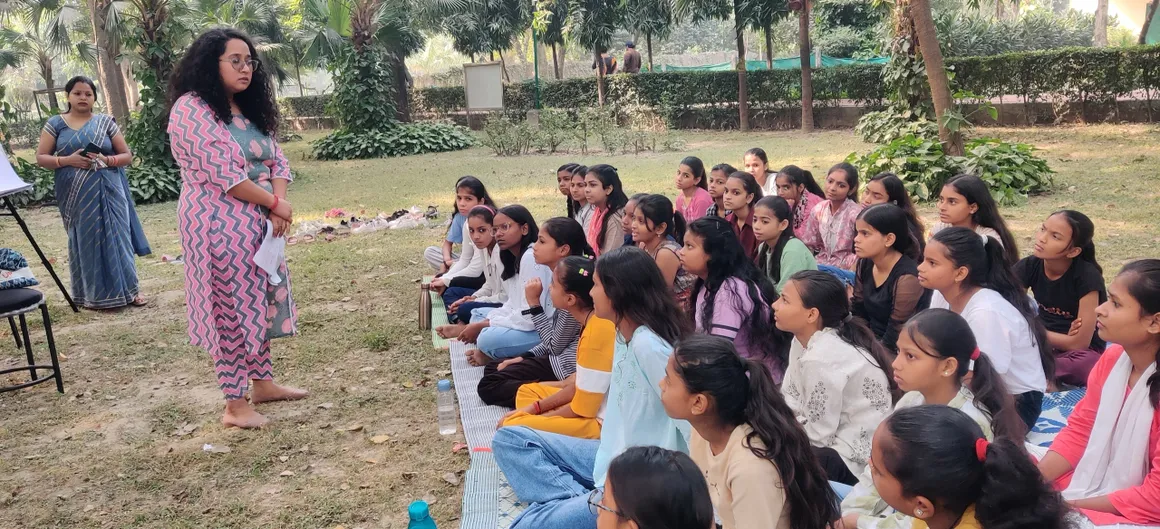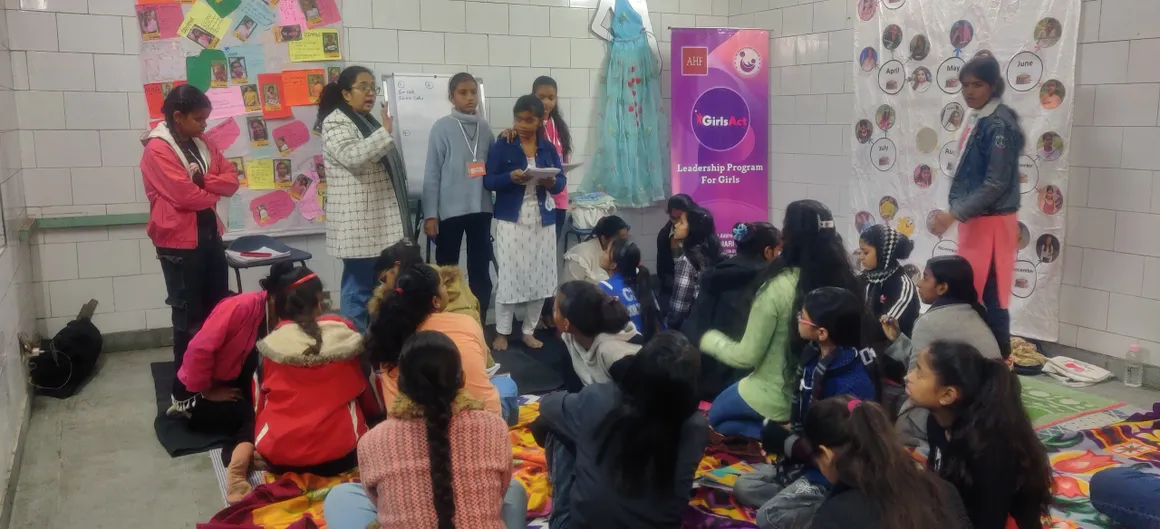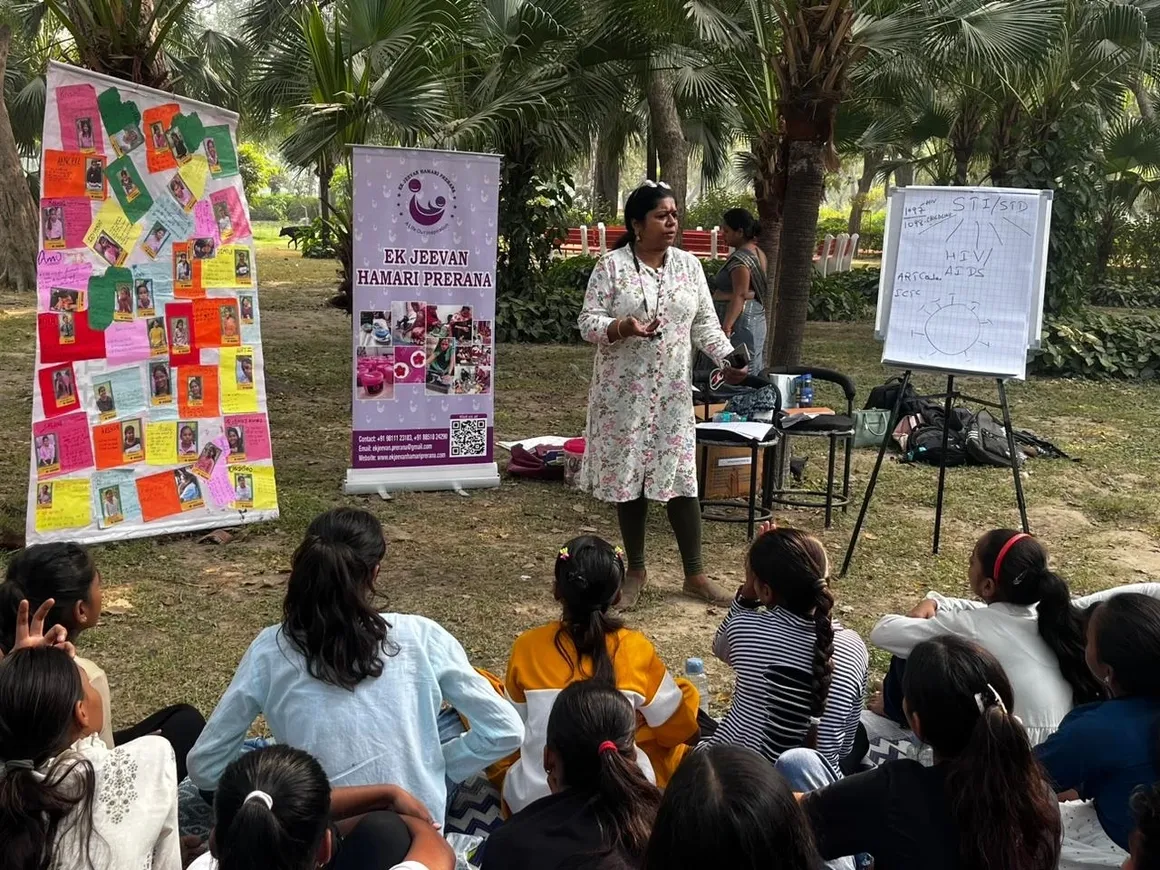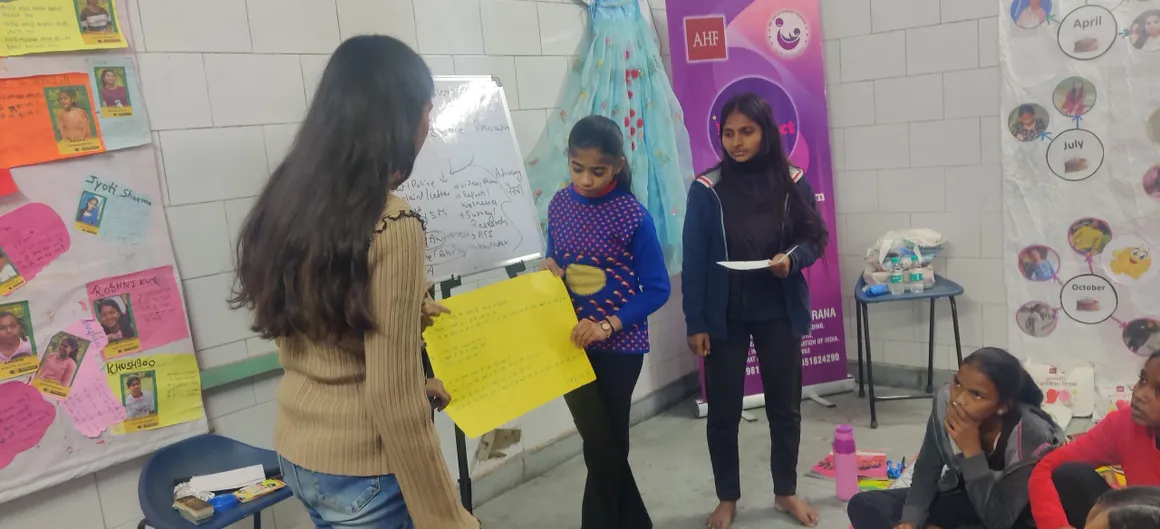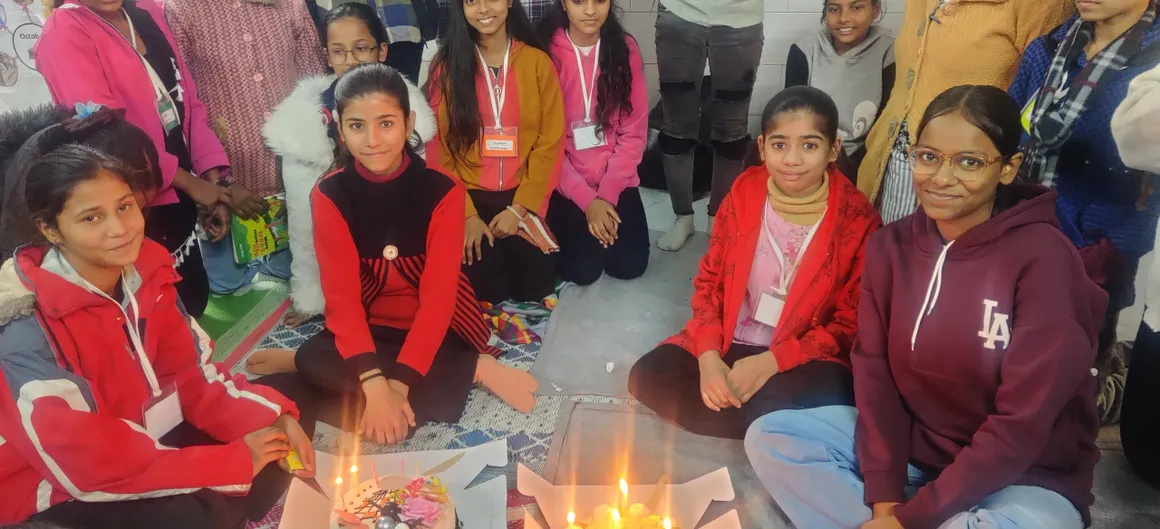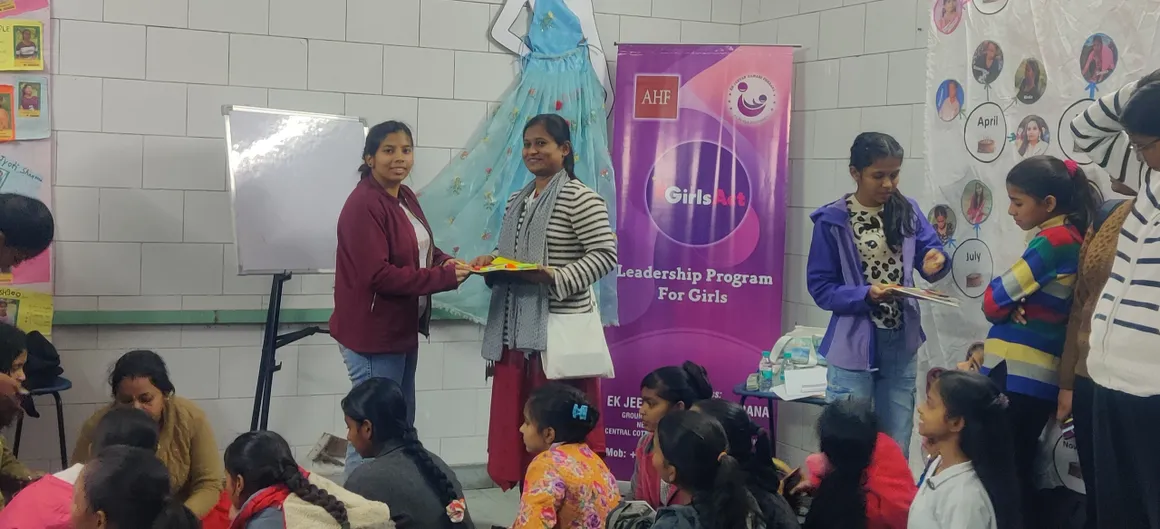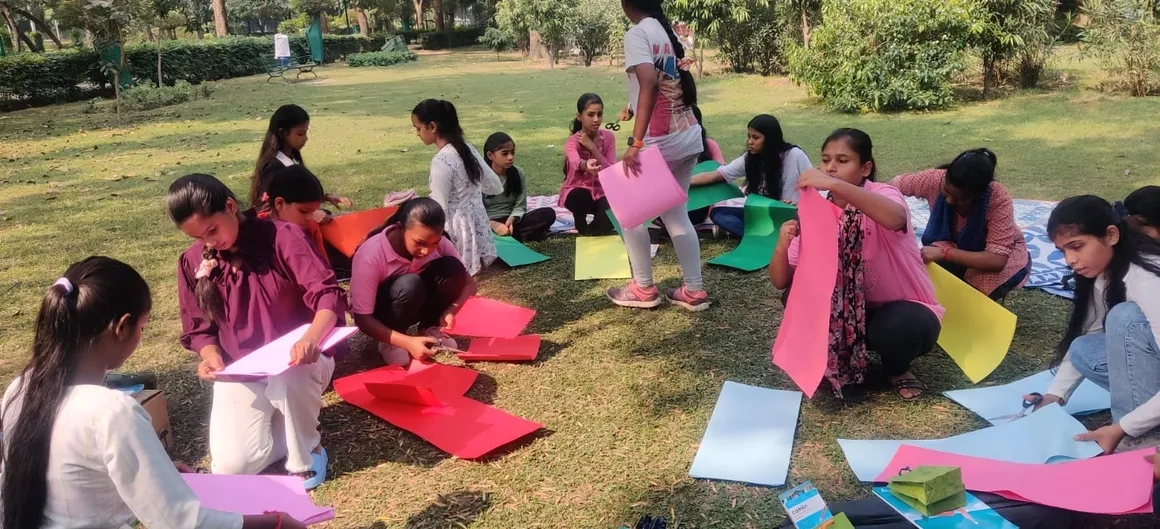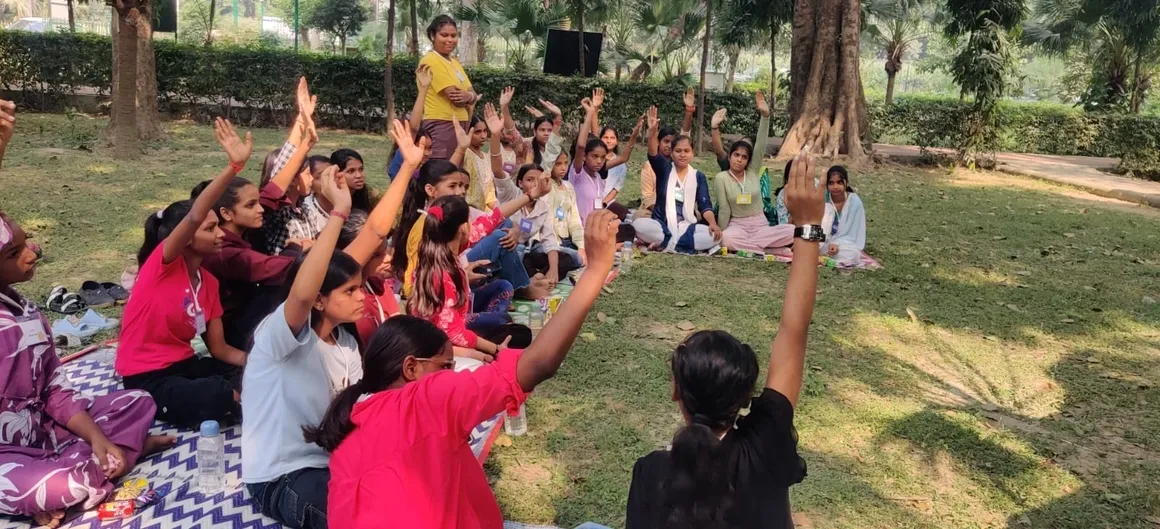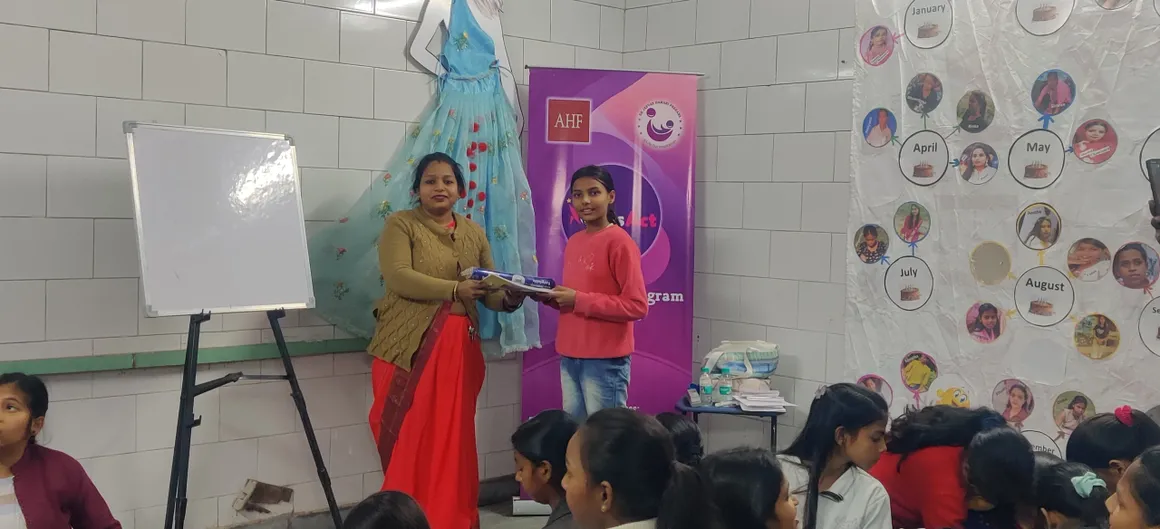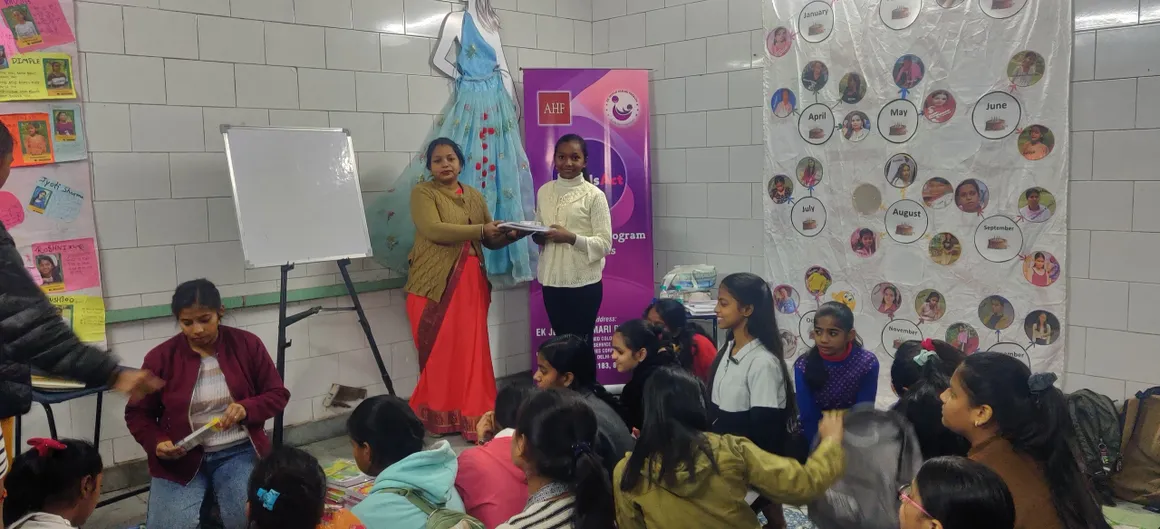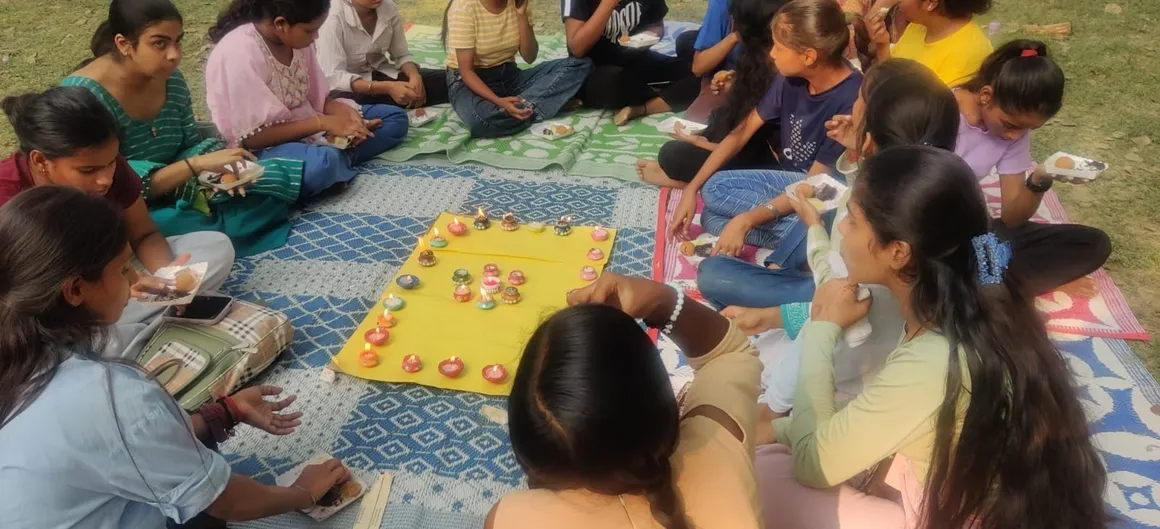AHF GIRLS ACT-KANYA KRANTI: Empowering Girls, Enhancing Lives

The AIDS Healthcare Foundation’s Girls Act program aims to prevent HIV/AIDS in young people and ensure that those already infected receive care
The Leadership Program for Girls is a catalyst for positive change, driving advancements in education and economic empowerment. By empowering girls to lead, we see a significant increase in their pursuit of higher education, securing better employment opportunities, and making meaningful contributions to their families and communities. Ultimately, this leads to a reduction in poverty, improved health outcomes, and a boost to India’s economic growth, creating a brighter future for generations to come.
The Leadership Program for Girls also unlocks their hidden potential, fostering creativity, innovation, and problem-solving skills. By providing girls with opportunities to develop their skills, build confidence, and take calculated risks, we empower them to become visionary thinkers, effective leaders, and change-makers, equipped to drive positive impact in their communities and beyond.
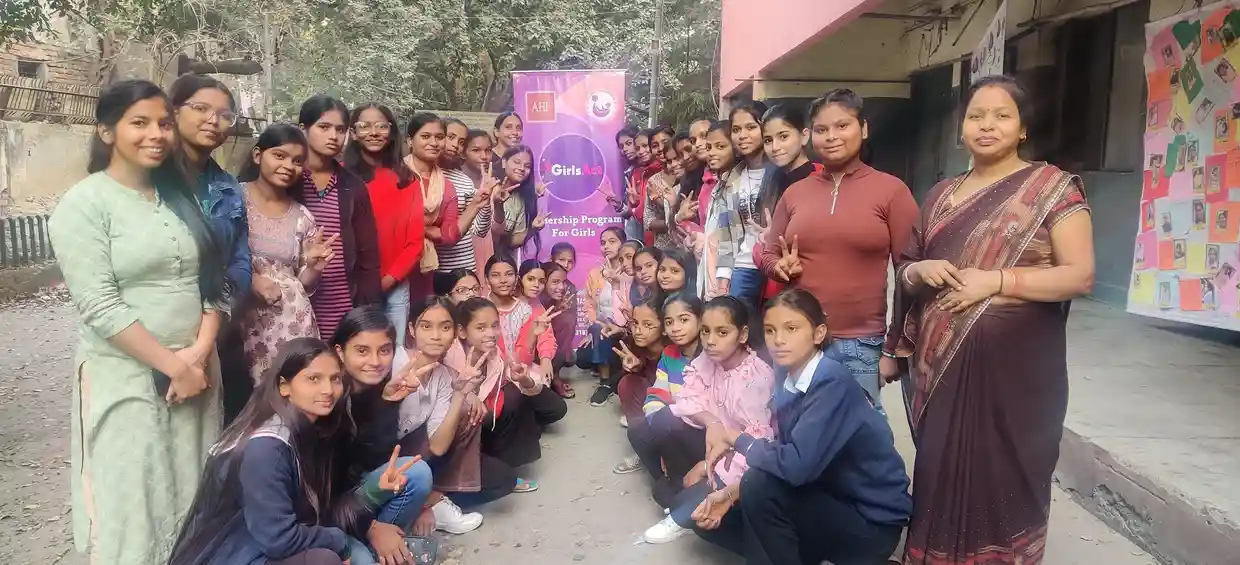
Session 1: Self-Esteem and Confidence Building
Self-esteem and confidence-building session have been conducted with 35 enthusiastic girls. These empowering activities were carefully designed to foster a supportive environment where participants could explore their strengths, talents, and individuality. Through a series of engaging activities, the teens were encouraged to embark on a journey of self-reflection and creative expression. This helped them recognize and appreciate their worth, acknowledging the unique qualities that make each one special.
A particularly poignant moment came when the girls realized that life’s journey can be unpredictable, and sometimes people may leave during difficult times. However, this session emphasized the power of true friendship – standing together, lifting each other up, and creating a supportive community where everyone feels included.
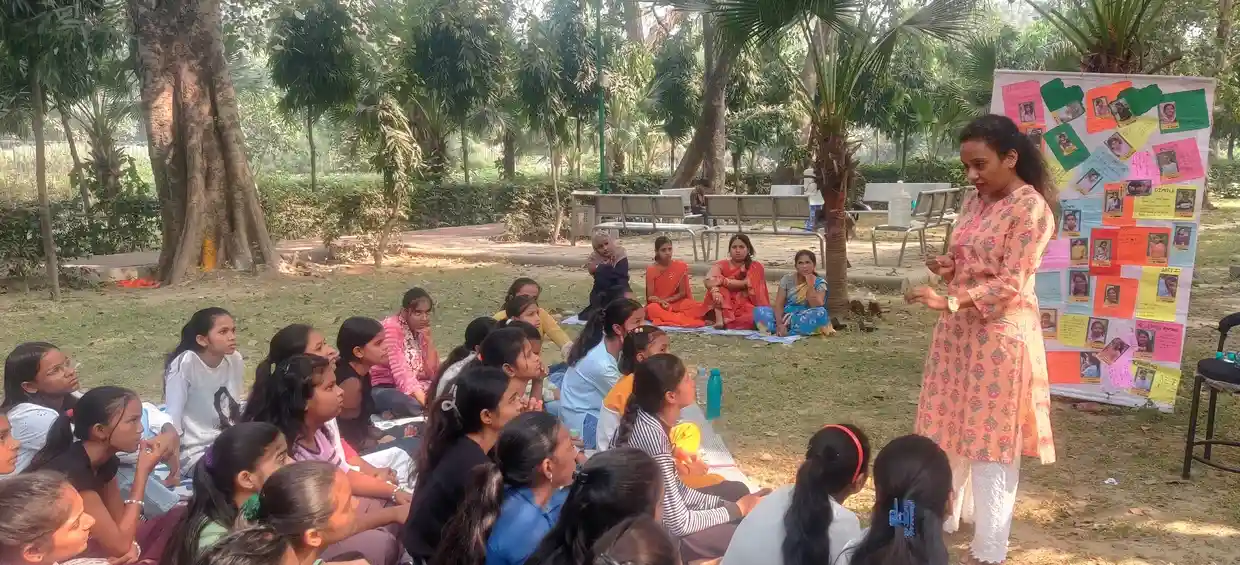
Session 2: Sexual and Reproductive health Education and Awareness
An informative session on Sexual and Reproductive Health Education and Awareness specifically designed for girls, equipping them with essential knowledge to become change-makers in their communities. The session covered five critical areas, starting with HIV awareness, where participants learned about HIV transmission, prevention, testing, and treatment options. The session also tackled the pressing issue of HIV-related stigma and discrimination, fostering empathy, inclusivity, and a culture of acceptance.
Additionally, session emphasized the importance of Menstrual Health and Hygiene, providing guidance on proper menstrual management and hygiene practices. The session also delved into Reproductive Health, discussing early debut to sex, early childbearing, and safe abortion practices. Lastly, the session tackled the sensitive topics of Sexual and Domestic Violence, creating a safe space for the girls to share their concerns and receive support.
By empowering these young leaders with comprehensive knowledge, session aim to create a ripple effect of awareness and positive change in their communities.
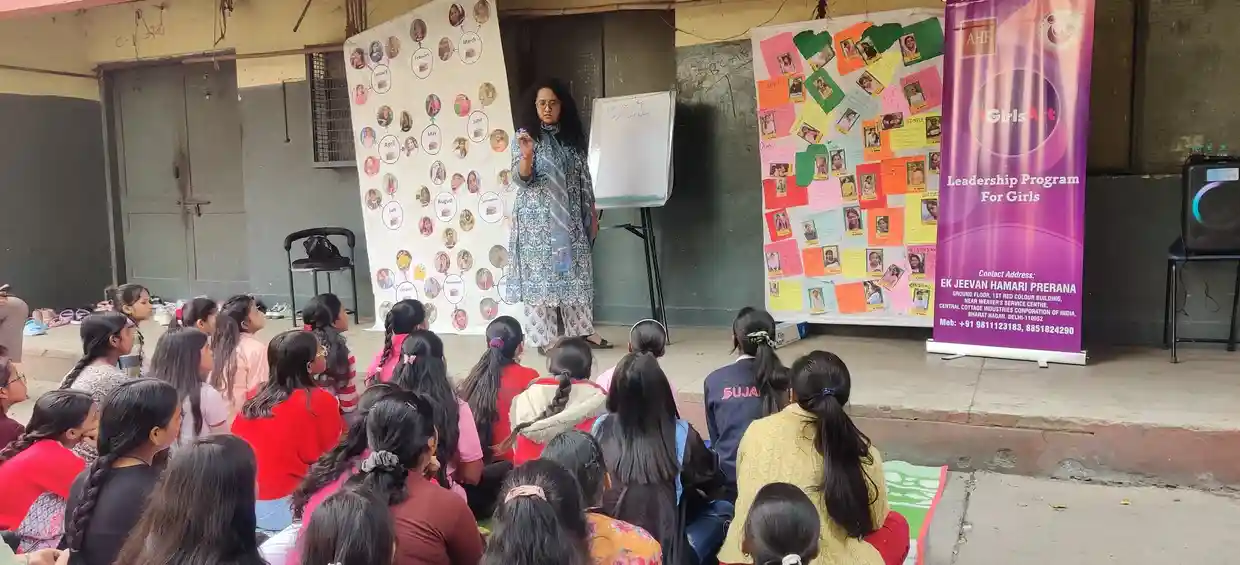
Session 3: Leadership Skills
The session on Leadership Skills was specifically designed to empower girls with essential skills to become confident leaders. The comprehensive session covered four key areas, starting with Communication Skills, where participants learned the importance of active listening, assertiveness, and effective conflict resolution. They gained valuable insights into expressing themselves clearly, setting boundaries, and navigating difficult conversations.
The session also focused on Problem-Solving and Decision-Making, enabling the girls to develop critical thinking skills, analyze challenges, and make informed decisions. Additionally, the session emphasized the significance of Goal Setting and Planning, teaching the girls how to set realistic objectives, create action plans, and track progress. Finally, the session explored Team Building and Collaboration, highlighting the value of building strong relationships, working together towards common goals, and celebrating collective successes.
By equipping the girls with these skills, they were able to organize a successful World AIDS Day event, which drew 300 participants. The experience of planning and conducting the event not only increased their confidence but also showcased their talent.
KANYAKRANTI- A TRANSFORMATIVE CHANGE LED BY GIRLS
For the past two months, the girls had been engaged in a thorough process to select a name for their group, with each member suggesting various options. After numerous discussions and deliberations, a consensus was finally reached, and the name “Kanya Kranti” was chosen.
Derived from Sanskrit, “Kanya Kranti” signifies a transformative change led by girls, perfectly capturing the essence of their collective aspirations and goals. On December 1st, 2024, the name was officially revealed, attended by all the girl leaders, marking a significant milestone in their journey together.
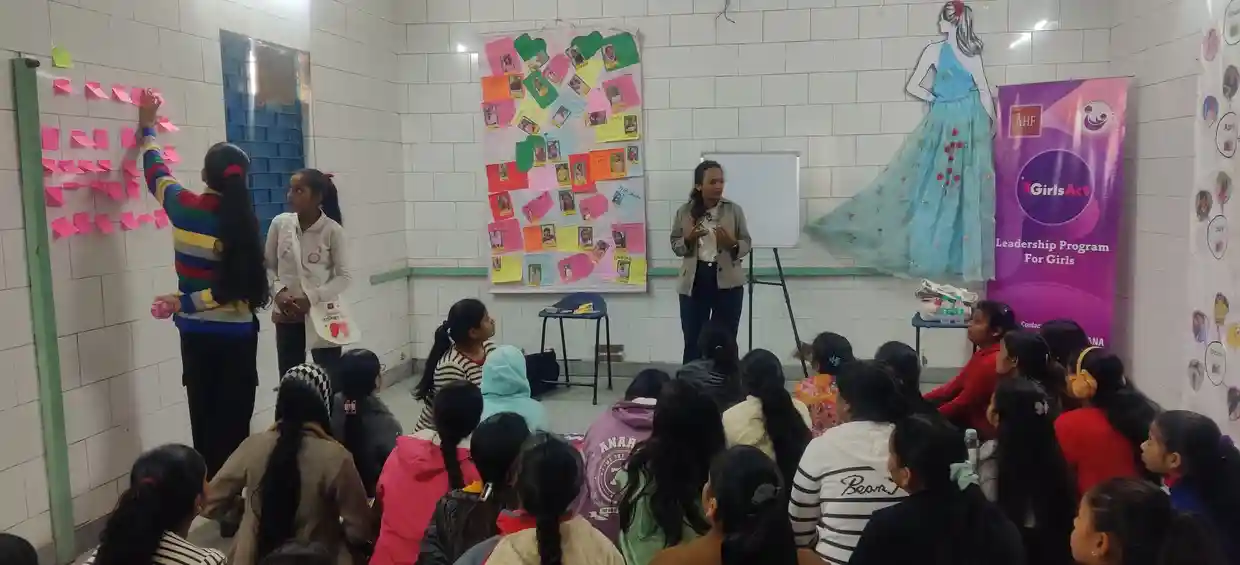
Session 4: Introduction to Advocacy
The Girls Act training session is covered four key modules which are understanding advocacy, identifying personal values and goals, building a support network and introduction to community mobilization. The session began with an in-depth exploration of understanding advocacy, where participants learned about the fundamentals of advocacy and its role in driving positive change.
The next module focused on understanding the distinction between personal issues and public issues. Through interactive discussions and exercises, used to get more clarity. This critical thinking skill is essential for effective advocacy, as it enables individuals to identify and address the root causes of social problems. By understanding the difference between personal and public issues, the girls can now better navigate complex social situations and develop targeted strategies for creating positive change.
The training also emphasized the importance of building a support network. The girls learned about the value of cultivating strong relationships with friends, family, and community members, and how these networks can provide essential support and guidance.
The final module introduced the girls to community mobilization, providing a foundational understanding of how to mobilize communities to act on social issues. Throughout the training, real-life examples and case studies were used to illustrate key concepts and make the learning experience more engaging and relatable.
To support their ongoing development and empowerment, the girls received a distribution of essential items, including books and other necessary materials. These resources will help facilitate their continued learning and growth, both within and outside of the Girls Act program.
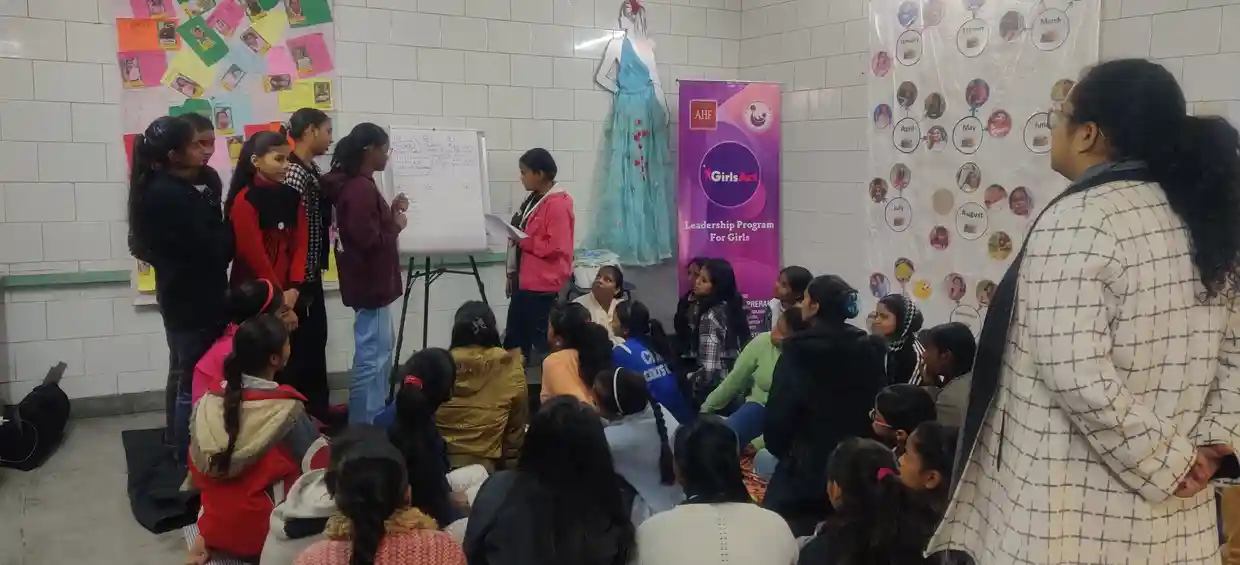
Session 5: Economic Empowerment
The session on Economic Empowerment was designed to equip girls with practical skills and entrepreneurial knowledge, enabling them to explore vocational opportunities. The session was divided into three modules. The first module, “Identify Goal and Relate to Vocational Training,” encouraged participants to reflect on their aspirations and identify the skills, knowledge, and attributes required to achieve them.
The second module, “Financial Literacy,” focused on imparting essential knowledge on personal finance and budgeting. Through an interactive activity, “Budgeting,” the girls planned a birthday party within a allocated budget, learning to prioritize expenses and make informed financial decisions.
The third module, “Accessing Resources and Economic Empowerment,” emphasized the significance of planning, resource management, and research in achieving economic independence. The trainer discussed government schemes and policies, highlighting the importance of money management and financial independence.
Real-life examples and case studies were used to illustrate effective money management strategies, empowering the girls to take control of their financial futures.
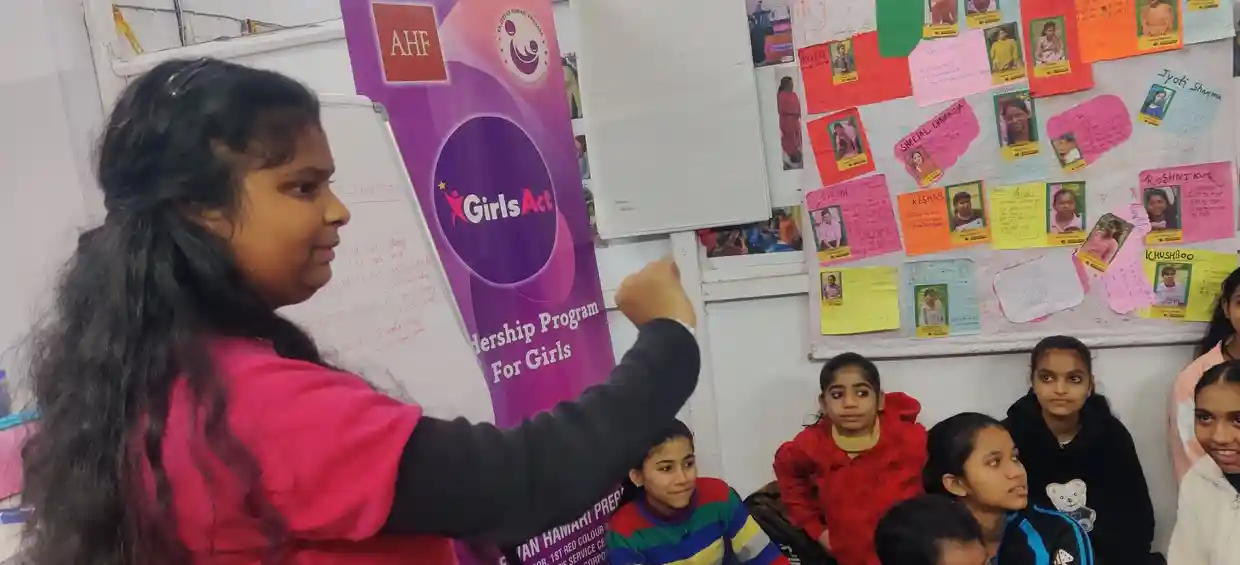
Session 6: Group Formation for Girls ACT
The session on Group Formation for Girls ACT aimed to empower participants to understand the significance of establishing a supportive community. The session was structured into four modules, each designed to foster a sense of unity, trust, and collective problem-solving.
The first module, “Importance of Girls ACT Groups,” highlighted the benefits of girls’ groups, including peer support, enhanced self-esteem, and improved problem-solving skills.
The second module, “Building Trust and Confidentiality,” featured interactive activities, including an icebreaker exercise and a trust-building game. These exercises encouraged participants to get to know each other, build trust, and establish a sense of camaraderie.
The third module, “Sharing Personal Experiences,” provided a safe space for participants to share their personal challenges and experiences. Guided questions facilitated reflective sharing, while active listening and empathy exercises helped participants develop essential interpersonal skills.
The final module, “Problem-Solving and Support,” focused on identifying common challenges, brainstorming solutions, and creating action plans. Participants worked together to address shared concerns, fostering a sense of collective responsibility and support.
CAPTURING SMILES: A GALLERY OF OUR CHARITABLE EFFORTS
